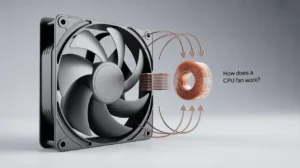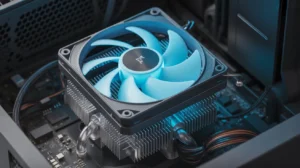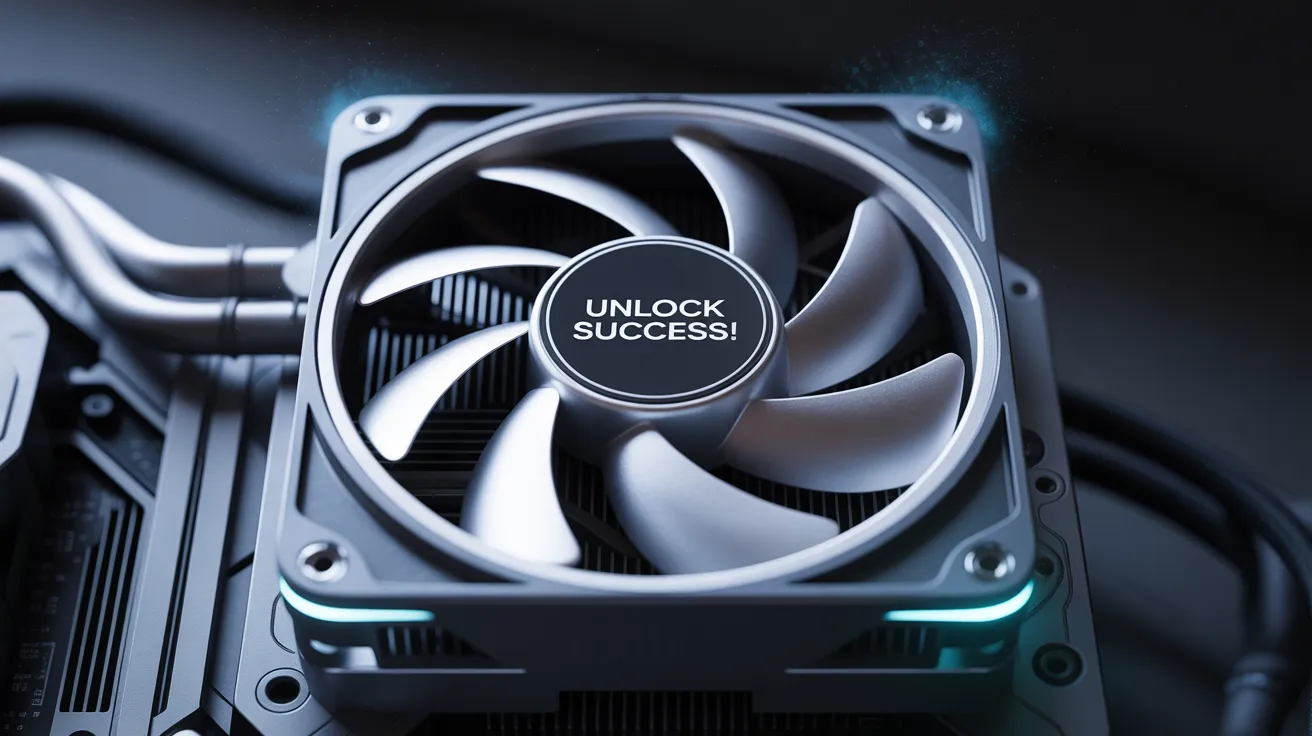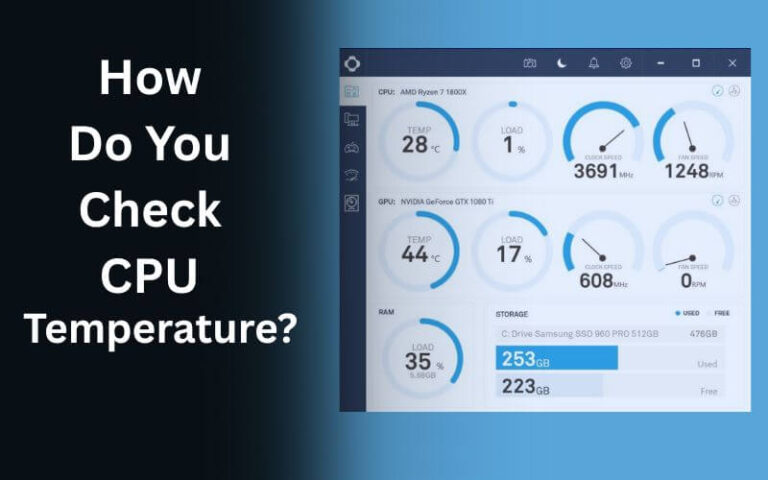What is the CPU fan? Unlock Success!
A CPU fan is a vital part of your computer’s cooling system. It helps prevent the CPU from overheating by circulating air to maintain a safe operating temperature. Without a CPU fan, your computer may experience slowdowns or crashes due to overheating.
In this guide, we will ensure the cooling fan processor runs efficiently, maintaining system performance and extending your computer’s lifespan.
When to Upgrade Your CPU Fan?
Upgrade your CPU fan if your computer shows overheating, loud noise, or slow processor performance during gaming or multitasking. A new cooling system improves airflow, temperature control, and keeps your PC running smoothly.
How Does a CPU Fan Work?
A CPU fan cools the processor by moving airflow, removing heat, and controlling temperature. This cooling system prevents overheating, enhances thermal management, and maintains stable computer performance.
How to Choose the Right CPU Fan?
To choose the right CPU fan, check compatibility with your processor and motherboard. Look for strong airflow, good heat control, and a reliable cooling system. Also, consider fan size, noise level, and performance for gaming or heavy work.
How to Install a CPU Fan?
To install a CPU fan, first apply thermal paste on the processor, then place the fan or cooler on top. Secure it with mounting brackets and connect the power cable to the motherboard. Make sure airflow direction supports heat control for better cooling system performance.
How CPU Fans Prevent System Damage?

CPU fans prevent system damage by controlling processor temperature and reducing overheating. The cooling system removes heat through airflow, thereby protecting the parts from heat damage. This keeps the CPU safe, improves stability, and ensures long-term performance.
How CPU Fans Impact Computer Performance?
CPU fans enhance computer performance by maintaining the processor’s cool temperature and preventing overheating. A good cooling system with proper airflow supports thermal control, allowing the CPU to run at full speed, deliver stable performance, and handle heavy tasks smoothly.
How to Clean Your CPU Fan Effectively?
To clean your CPU fan effectively and maintain optimal computer performance, follow these simple steps:
- Turn off your computer: Ensure that your computer system is powered off and unplugged to prevent electrical issues. This will help avoid hardware damage.
- Remove the side panel: Open the computer case to access the CPU cooling fan. Most cases have screws or latches on the back to allow for easy detachment of the panel.
- Use compressed air: Hold the fan blades in place to avoid spinning and use a can of compressed air to blow out dust particles. Be sure to target all areas, especially the fan motor and heatsink.
- Clean with a brush, optional: If dust is still stuck, gently clean the blades and the area around the fan using a soft brush. This will remove any stubborn dirt that the air can’t get rid of.
- Reassemble the computer: After cleaning, ensure that there’s no moisture left on the computer hardware and close the case. Reattach the screws or latches securely.
- Turn on the computer: Power your PC back on and check if the fan noise is reduced and if everything is running smoothly. This will help maintain cooling efficiency and prolong your CPU’s lifespan.
How CPU Fans Affect Gaming Performance?
CPU fans are essential for maintaining gaming performance. Here’s how:
- Prevent Overheating: During gaming, your CPU generates heat. A good CPU fan keeps it cool, preventing slowdowns, lag, and crashes.
- Improve Stability: Proper cooling ensures your system runs smoothly, avoiding performance drops and frame rate issues during intense gaming.
- Boost Longevity: A functional CPU cooling fan protects your hardware, increasing the lifespan of your gaming PC.
- Enhance Performance: A cool CPU runs faster, delivering smoother gameplay and better frame rates for an optimal gaming experience.
How to Monitor CPU Fan Speed and Performance?
To monitor your CPU fan speed and performance:
- Use Software: Download tools like HWMonitor or SpeedFan to check fan speed, RPM, and temperature.
- Check BIOS/UEFI: Enter BIOS or UEFI during startup to view fan performance and cooling efficiency.
- Monitor Temperature: Keep an eye on CPU temperature. High temperatures could mean poor fan performance.
- Listen for Noise: Unusual noises can signal issues with the fan, affecting system stability.
Signs Your CPU Fan Needs Replacement?
Here are some common signs that your CPU fan may need replacement:
- Loud Noises: Strange sounds can indicate problems with the fan motor or blades.
- Overheating: High CPU temperature, even with cooling, suggests the fan isn’t working properly.
- Fan Not Spinning: If the fan isn’t spinning or is slow, it’s likely faulty.
- Frequent Shutdowns: Overheating due to poor fan performance can cause system shutdowns.
- Lag or Crashes: Inadequate cooling can lead to lag, freezes, or crashes.
FAQs:
1. Why Is a CPU Fan Important for Your Computer’s Performance?
A CPU fan cools the processor, preventing overheating, which keeps your system stable and efficient.
2. How Does a CPU Fan Help Prevent Overheating?
The fan blows air to reduce heat, ensuring the CPU runs smoothly during tasks like gaming or video editing.
3. Can a Computer Run Without a CPU Fan?
No, without a CPU fan, the processor will overheat, leading to system crashes and hardware damage.
4. Is It Necessary to Replace the CPU Fan Regularly?
Yes, replacing the fan is crucial to avoid overheating, which can slow down or damage your computer.
5. Does a Larger CPU Fan Improve Cooling Efficiency?
Yes, a larger fan moves more air, improving cooling and reducing heat, ideal for gaming and high-performance tasks.
Conclusion:
CPU fan plays a crucial role in maintaining your computer’s temperature, preventing overheating, and ensuring smooth performance. Regular cleaning or upgrading the fan helps avoid system slowdowns, crashes, and hardware damage. Keeping your CPU cool not only boosts performance but also extends the life of your computer, ensuring it runs efficiently for longer.







